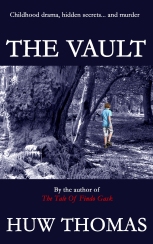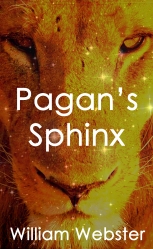Making The News
Ever wondered how to get a newspaper or radio station to take notice of what you’re doing?
If so, my latest book might be of interest – and the Kindle edition is free to download this weekend (Saturday & Sunday).
My main focus these days is on writing novels but – in that strange parallel world that involves working for a living – I originally trained as a newspaper journalist before going into the PR/communications field. I’ve also been involved in training others in how to use the media.
 Now, I’ve put some of that experience into a new ‘how to guide’ called Making The News.
Now, I’ve put some of that experience into a new ‘how to guide’ called Making The News.
The tagline for the book is:
Simple advice on writing clear, effective press releases
And that’s what it’s about. Advice from the horse’s mouth – based on more than 40 years’ joint experience from myself and my wife, Carolyn, of working both on newspapers and for ‘the other side’.
The guide is aimed primarily at anyone who’s new to the world of public relations – whether you’re doing this as a career or you’ve got a particular cause or enterprise you want to promote.
It doesn’t cover the whole gamut of PR and communications. This is focussing solely on using the media – newspapers, radio, TV etc – to get (free) publicity through news stories.
One word of warning – the advice inside is based on working in the UK. How the workings of the media translate to other countries, I’m not sure, although the basics of how to write a press release and communicate your message should be universal.
Hopefully the guide might also be of interest to anyone who wants to brush up on old skills or anyone thinking of a career in journalism.
There’s no rocket science involved. In fact, that’s the point. Using the media is about having a clear message and knowing how to communicate it.
Try it and see. If you like it, please consider posting a review on Amazon. If you get it for free and like it, please consider making a donation to the disaster relief charity ShelterBox. (They’ve got affiliates in 18 countries so you don’t have to give in the UK.)
Please note: the free download is available tomorrow and Sunday – not today!
That’s all for now. Have a good weekend – I’m flying to Portugal this evening for a two-week holiday and I can’t wait!
Strange Bedfellows
My first career was as a newspaper journalist. It’s a job that takes you into many different worlds – some that you’re happy to enter, some that leave you totally cold/bemused/horrified.
All journalists in the UK are expected to know and understand the workings of local and national government, the courts, the education system, the health system etc, etc. Sometimes, though, the knowledge required for a particular story can be a bit more specialist.
Working on a paper up in the north of England, I once had to stand in for the farming editor and cover a local sheep show. It was… different. I didn’t know that much about sheep beforehand and funnily enough the experience didn’t tempt me into becoming a specialist.
Another time, I was covering the ongoing trial of a man accused of sending a fishing boat to sea in such a terrible state that he was blamed for the subsequent deaths of all those involved. As part of the coverage I had to write an in-depth report that explained aspects of Britain’s trawler industry.
I also spent some time as crime reporter for a daily paper. That certainly exposes you to the darker side of life – and makes me very glad to live in a village in a quiet corner of southern England.
The range of topics you get involved in is one of the things that makes journalism an attractive career. (Believe me, it’s not the pay, the hours or the respect!)
As an author (a job that’s a bit more socially acceptable but otherwise generally similar conditions), I’ve found myself taking all kinds of tangents. My writing has taken me through the deserts of North Africa (Pagan’s Sphinx), kayaking (Findo Gask) and into the life of a young journalist (Thin Ice).
Those are all subjects I can write about from personal experience. Other times though, considerable research is involved. One group of character in The Vault have… well, let’s say ‘dodgy’ backgrounds.
Okay, they’re a group of mercenaries who are ex-Soviet military. Which is where the research started to get interesting. I needed to know various things about members of the Russian Special Force: tattoos, location of their bases and the weapons they might use.
The details mentioned in The Vault are things that most readers will probably skim over without blinking. But there’s always the chance that a reader might know the subject better than me. Which is why the facts need to be, at the very least, plausible for these characters.
Hopefully I’ve got it right. No-one’s picked me up on any mistakes yet. But it was a piece of research that took me into a new world yet again. Spetsnaz killers make strange bedfellows but that’s one of the intriguing things about being a writer; you never know where it might take you – or in whose company.















